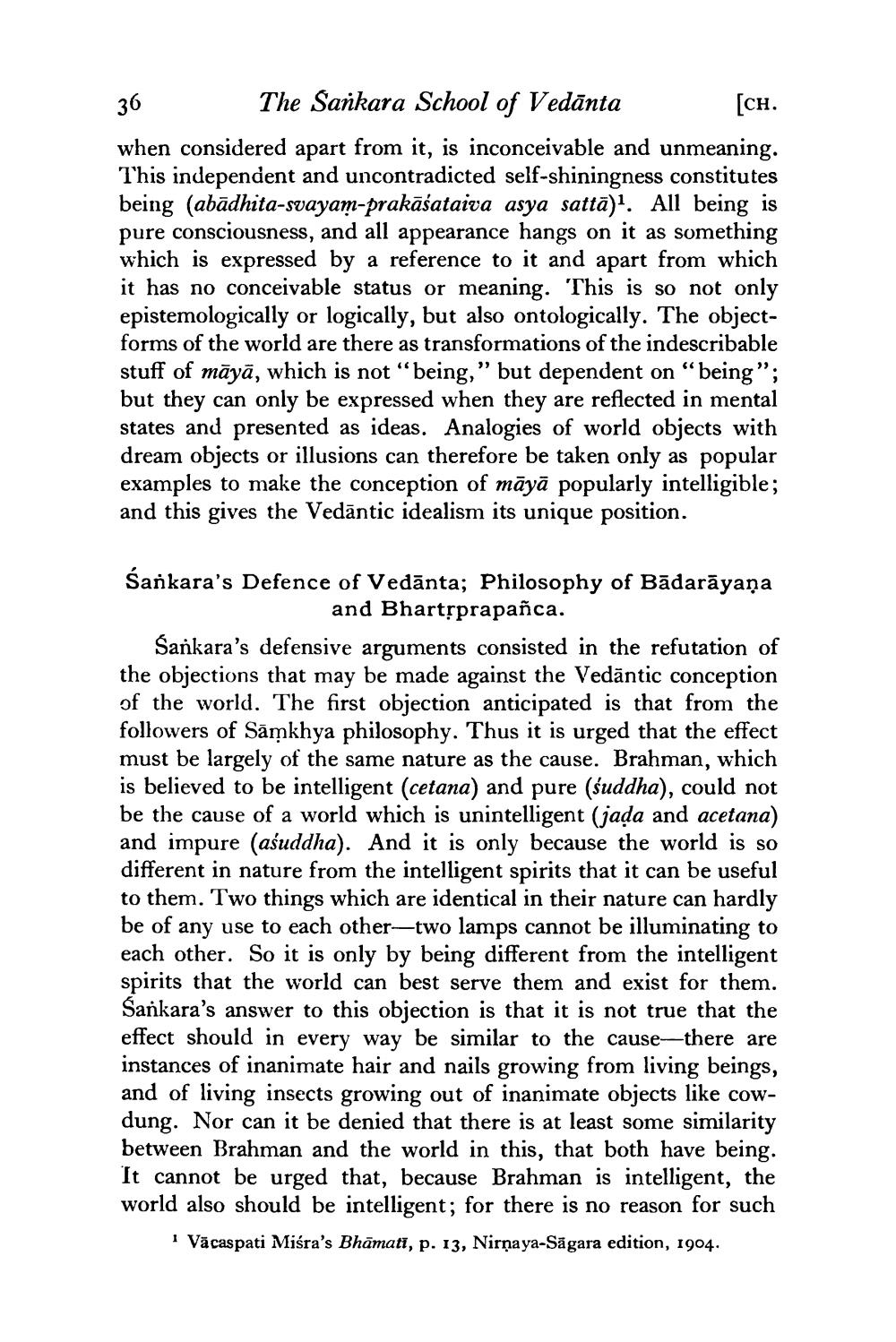________________
36
The Sankara School of Vedanta
[CH.
when considered apart from it, is inconceivable and unmeaning. This independent and uncontradicted self-shiningness constitutes being (abadhita-svayam-prakāśataiva asya sattā)1. All being is pure consciousness, and all appearance hangs on it as something which is expressed by a reference to it and apart from which it has no conceivable status or meaning. This is so not only epistemologically or logically, but also ontologically. The objectforms of the world are there as transformations of the indescribable stuff of māyā, which is not "being," but dependent on "being"; but they can only be expressed when they are reflected in mental states and presented as ideas. Analogies of world objects with dream objects or illusions can therefore be taken only as popular examples to make the conception of māyā popularly intelligible; and this gives the Vedantic idealism its unique position.
Sankara's Defence of Vedanta; Philosophy of Badarāyaṇa and Bhartṛprapanca.
Sankara's defensive arguments consisted in the refutation of the objections that may be made against the Vedantic conception of the world. The first objection anticipated is that from the followers of Samkhya philosophy. Thus it is urged that the effect must be largely of the same nature as the cause. Brahman, which is believed to be intelligent (cetana) and pure (śuddha), could not be the cause of a world which is unintelligent (jada and acetana) and impure (aśuddha). And it is only because the world is so different in nature from the intelligent spirits that it can be useful to them. Two things which are identical in their nature can hardly be of any use to each other-two lamps cannot be illuminating to each other. So it is only by being different from the intelligent spirits that the world can best serve them and exist for them. Sankara's answer to this objection is that it is not true that the effect should in every way be similar to the cause there are instances of inanimate hair and nails growing from living beings, and of living insects growing out of inanimate objects like cowdung. Nor can it be denied that there is at least some similarity between Brahman and the world in this, that both have being. It cannot be urged that, because Brahman is intelligent, the world also should be intelligent; for there is no reason for such
1 Vācaspati Miśra's Bhāmatī, p. 13, Nirnaya-Sagara edition, 1904.




